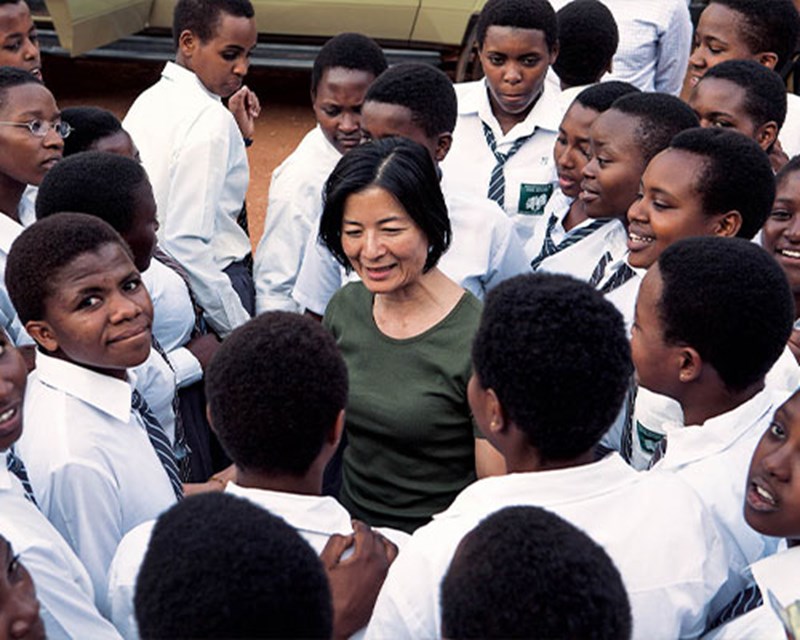There is a divine spark within every human being that gives all of us the capacity for extraordinary goodness: to love, to create, to help, to forgive. It is a universal light that connects all of us to the flame of humanity. My journey – as an artist, as an actor, and as a social activist – has always been fundamentally about strengthening my connection with the individual or the character in front of me, to pull away all the outer layers that obscure the truth, and to discover the light hidden deep within.
This search for the light has guided my work from the beginning, as it guides us all. Since I was young, I have had role models who have helped me learn to discover this light where others might overlook it.
My mother was a special education teacher who worked closely with students with severe learning disabilities. Watching her interact with those students, seeing the love and attention she gave to each and every one, had a big impact on me. Sometimes I had the opportunity to come to her class and work with these students myself, and I was able to see the strength they possessed as they struggled to cope with some of their challenges.
I saw this light in other hidden places, too. My childhood was marked, in many ways, by conflict. I grew up in South Central Los Angeles during what was a tumultuous time for that part of the city, to say the least.
The Watts riots occurred a few miles from my house. The Black Panthers had a headquarters in my neighbourhood that I saw blown up one day by the police. The Bloods and the Crips were formed when I was still a student in middle school.










